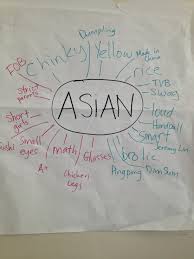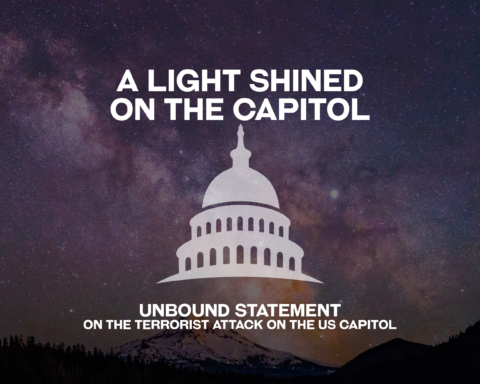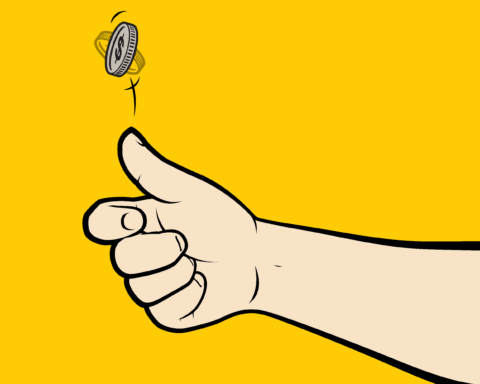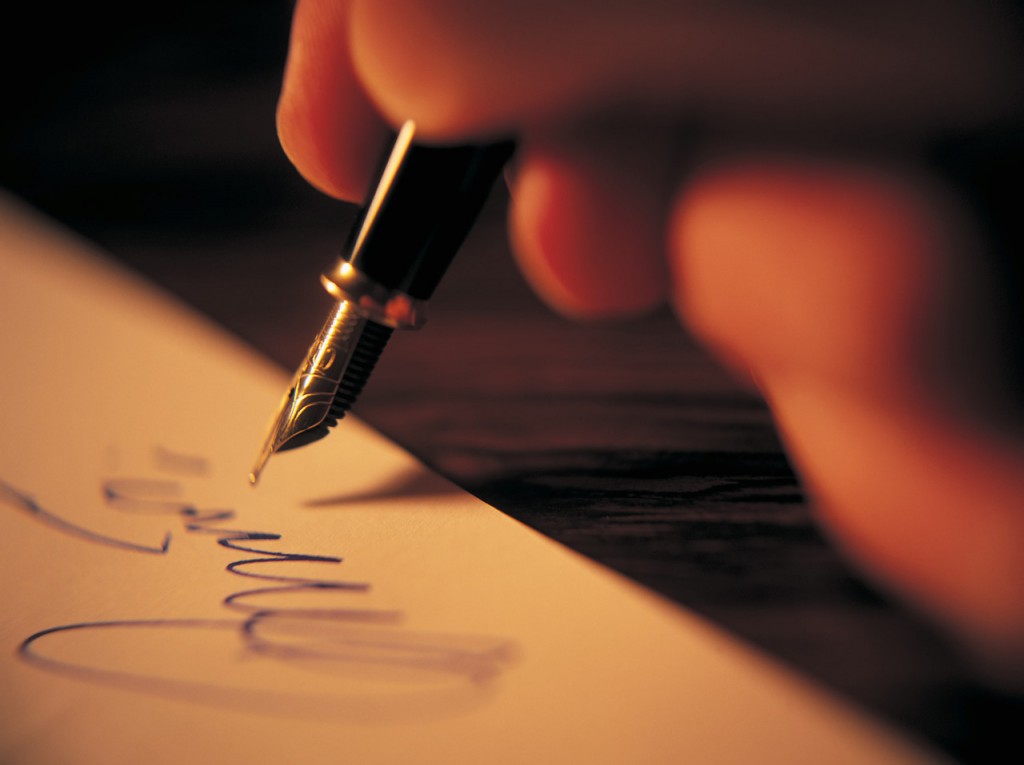
Racism kills. It dehumanizes us all, telling some of us we are less than human and rendering others of us incapable of having a decent conversation about it. It takes our best intentions and misshapes them beyond recognition; no matter what we do or what we mean to do, we move and breathe and live within laws and a cultural reality that is racist.
But the one good thing racism has given me is Asian America.
Asian America is a social construct, not a biological one. It is a category I fall into by virtue of nothing more than my mother’s ancestors. No person from Asia shows up in the U.S. and automatically feels linked to people from other Asian countries.
Asian American identity isn’t about rice, although I’ve joked about this before. People of many races eat rice, and even rice within Asian American communities has great diversity. It isn’t about any food or flavor, really, which means any dish or dressing labeled “Asian” is just asking for me to mock the ignorance of said dressing’s manufacturer. I can settle for “Asian” if it means we avoid the dreaded, inappropriate, and colonial “O” word.
___________________________________________
My racial identity allows me to find my way in the midst of a racist country that hasn’t yet agreed I should exist.
___________________________________________
Asian American identity isn’t about a shared language. 2,197 distinct languages are spoken on the continent of Asia, according to the Linguistic Society of America. Asian Americans do not share a religion or a philosophy. Confucianism is regional, and while most Korean Americans are Protestant Christians and most Filipino Americans are Catholic, Asian Americans are largely Unaffiliated-Atheist/Agnostic-Buddhist-Hindu-Shinto-Muslim-Sikh-Jain-animist.
Asian American identity isn’t about how we ended up in the U.S. We came as refugees, immigrants, adoptees, victims of human trafficking, and indentured labor. We passed through New Zealand or Peru or Canada or the United Kingdom or Brazil before we came here.

What binds us together? American racism. Every person who is Asian American and who went to elementary school before yesterday in a non-Asian area of town was made to feel ashamed of the food in his/her lunchbox. We are disproportionately affected by high rates of mental health issues. We are all impacted by the bamboo ceiling, by almost no presence in corporate board rooms of industries in which we are disproportionately represented, by lower-than-average rates of political representation despite our growing political presence, and by the relative invisibility we and our issues face due to the way we are lumped together as “Asian American.” We are all impacted by the model minority myth, dividing us from other communities of color, and putting unhealthy levels of pressure on us. We all know what it feels like to be treated as part of one undifferentiated mass, where outliers to the usual stereotypes (e.g. Asian Americans living in poverty or struggling with low educational attainment) are swept under the rug.
That’s what we have in common.
But race in the U.S. has a positive side. (Confused? Bear with me.)
Racism is about dehumanizing us, but racial identity isn’t bad. Racism strips me of my humanity, and racial identity hands it right back. Racial identity is beautiful. Racial identity is powerful. God made us different and lovely and through the ugliness of white supremacy, some of us have found belonging.
___________________________________________
No person from Asia shows up in the U.S. and automatically feels linked to people from other Asian countries. What binds us together? American racism.
___________________________________________
One of the primary old-school theological justifications for fighting racism is God’s mandate to care for “the least of these.” I have come to believe this theological formulation is incorrect. We who are people of color are not the least of these, at least not inherently so. We are God’s joy and intention for humanity. The entire book of Acts tells us diversity is impossible to avoid, that God speaks our languages, that no one is unclean or undesirable. That is why racism is so bad. Racism seeks to disrupt God’s joy. Positive racial identity helps make God’s intention a reality.
 Racial identity means we who come with 2,197 different ways of seeing the world and expressing ourselves can coalesce into one Asian America.
Racial identity means we who come with 2,197 different ways of seeing the world and expressing ourselves can coalesce into one Asian America.
The racial identity formation of people of color is not the same as the racial identity formation of white people. We are pushed into a corner, and in that corner, we create a racial culture. We are given a place that grounds us, a home in a world of alienation. For those of us too profoundly American to fit into any country in Asia (there’s no “back there” for most of us), and for those of us too Asian to be considered truly American (we’re not white and we’re never going to be white, you guys), we have a home here in Asian America. My racial identity is profoundly positive because it gives me a community of solidarity and a place of pride and belonging in a country that has sought to end who we are, to eliminate our ways of life and love, to mock us, to pit us against other people of color, to remind us we aren’t white, to make us believe we do not belong anywhere.
I am part of a group identity founded on solidarity in the face of injustice, coupled with great food. Asian Americans have found expression through music, the visual arts, literature, theatre, theology, Biblical hermeneutics, activism, and spaces invisible to most white Americans. Ambiguous as it may be, Asian Americans have a space that grounds us. It is a space that reflects the beauty of our aunties and uncles, the ones who left countries with no hope of return, the ones who endured in joy despite hatred, discrimination, being driven out by mobs, and who built this country’s infrastructure only to face death by dynamite. It is a space that tells us we look perfect in a country that says our skin is too dark, our hair too coarse, our eyes too narrow, our noses too flat, our food too smelly, our religion too foreign, our tastes too exotic, our language too strange-sounding.
___________________________________________
The entire book of Acts tells us diversity is impossible to avoid, that God speaks our languages, that no one is unclean or undesirable. That is why racism is so bad. Racism seeks to disrupt God’s joy.
___________________________________________
Asian Americans played an important role in the founding of ethnic studies [1] as a discipline. We have history. We have music. We have spoken word. We have individuals who fill us with pride because they were the first Asian American governor on the mainland or the rare Asian American congressperson or huge pop star or major civil rights figure. [2] We have created a place of belonging in a culture constantly rejecting us for our foreignness (this gets old when you’re a fourth-generation American). We have a community that gives us a place to go when the reality of racism makes us feel like we can’t take it any longer. We are connected with other people who have fought and continue to fight racism. We have legal and civic and cultural organizations that bring us together in solidarity with other marginalized groups, to proclaim our shared humanity with one voice. We speak up for each other. [3]

Asian Americans are a diasporic people. We aren’t bound by the limitations of borders. Our pride isn’t just American; our pride is in our ancestors, the countries they came from, and their resolve upon arriving in the U.S.
Asian America isn’t all fun and games. Racism still sucks. And it isn’t easy to be part of a very diverse community. However, because we have learned to live together despite our differences in beliefs, cultures, worldviews, languages, and values, we are in a unique position to teach the church about what it means to be in diverse community in the hardest of times, even when that community doesn’t feel like it makes sense. We know what it is to live, have conflict, get tripped up in cultural miscommunications, and create community in the midst of cultural indifference and ongoing discrimination.
Race isn’t bad. Racism is bad.
The specificity of our racial identity, as people of color, in fact, is very good. My racial identity reminds me I’m not alone. A racial identity allows me to find my way in the midst of a racist country that hasn’t yet agreed I should exist. I have a community of people who share many of my same experiences. I have a community where we feed each other and laugh together at the madness of the world. I have a community of music and art and poetry and theology and worship.
________________________________________________________________
[1] Ethnic studies as a field began thanks to protests at San Francisco State University. https://en.wikipedia.org/wiki/Third_World_Liberation_Front_strikes_of_1968
[2] Governor: Gary Locke, Washington State, elected in 1996. First elected Congressperson with vote was Representative Dalip Singh Saund, California, began serving in 1957. Major pop stars: Norah Jones, Bruno Mars. Civil rights figures: Grace Lee Boggs, Yuri Kochiyama.
[3] Japanese Americans are just one group with a history of speaking out against intolerance toward other groups of people, such as Muslims or people (incorrectly) racialized as Muslims. http://www.sfgate.com/bayarea/article/Formerly-interned-Japanese-Americans-stand-up-6716136.php
*****
AUTHOR BIO: The Rev. Laura Mariko Cheifetz is a double pastors’ kid of Japanese and white Jewish descent born in California, and raised in Oregon and Washington. After stints in New York City (Presbyterian United Nations Office), Chicago (McCormick Theological Seminary), San Francisco (pastoral internship), and Atlanta (The Forum for Theological Exploration), she now lives in Louisville and works as the Vice President of Church & Public Relations for the Presbyterian Publishing Corporation.
Read more articles in this issue Call to Confession: Race, White Privilege and the Church!






Unbound Social